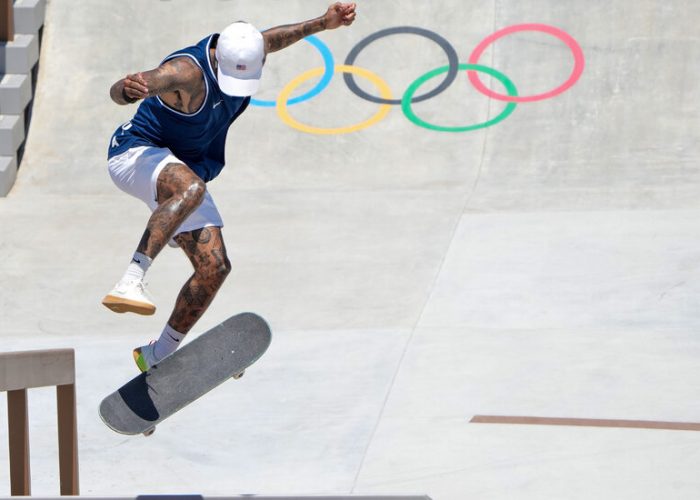By the time Los Angeles hosted the 1932 Olympics, California had come to represent to the world a vision of American affluence, of a good life one that would ultimately remain out of reach for most.
The debuts of skateboarding and surfing at the Games this year, Dyreson told me in an email, reinforce this pattern.
No matter their historical origins (in the case of surfing, thats in Hawaii, not California), action sports have tended to take off when they get sucked into the California cultural production industry and transformed into lifestyles complete with clothing lines, iconographic narratives and liberal doses of California cool, Dyreson wrote.
Thus, the sports are extensions of American and specifically Californian consumerism delivered to the world via the mega-spectacle that is the Olympics.
Neftalie Williams, a postdoctoral scholar at U.S.C. and a visiting fellow at the Yale Schwarzman Center who studies skateboarding culture, had a more generous assessment. The inclusion of skateboarding in the Olympics signals recognition for athletes of diverse backgrounds who have been marginalized and criminalized, he told me.
It makes you think about the fact that here are Olympians that can get arrested skating down the street, he told me. No ones getting arrested playing water polo.
Unlike athletes in other sports, elite skateboarders arent siloed from the rest of the community, which means young skaters can engage at whatever level they want. So representation at the Olympic level has a different kind of resonance.read more
The ‘Californization’ of the Olympics


